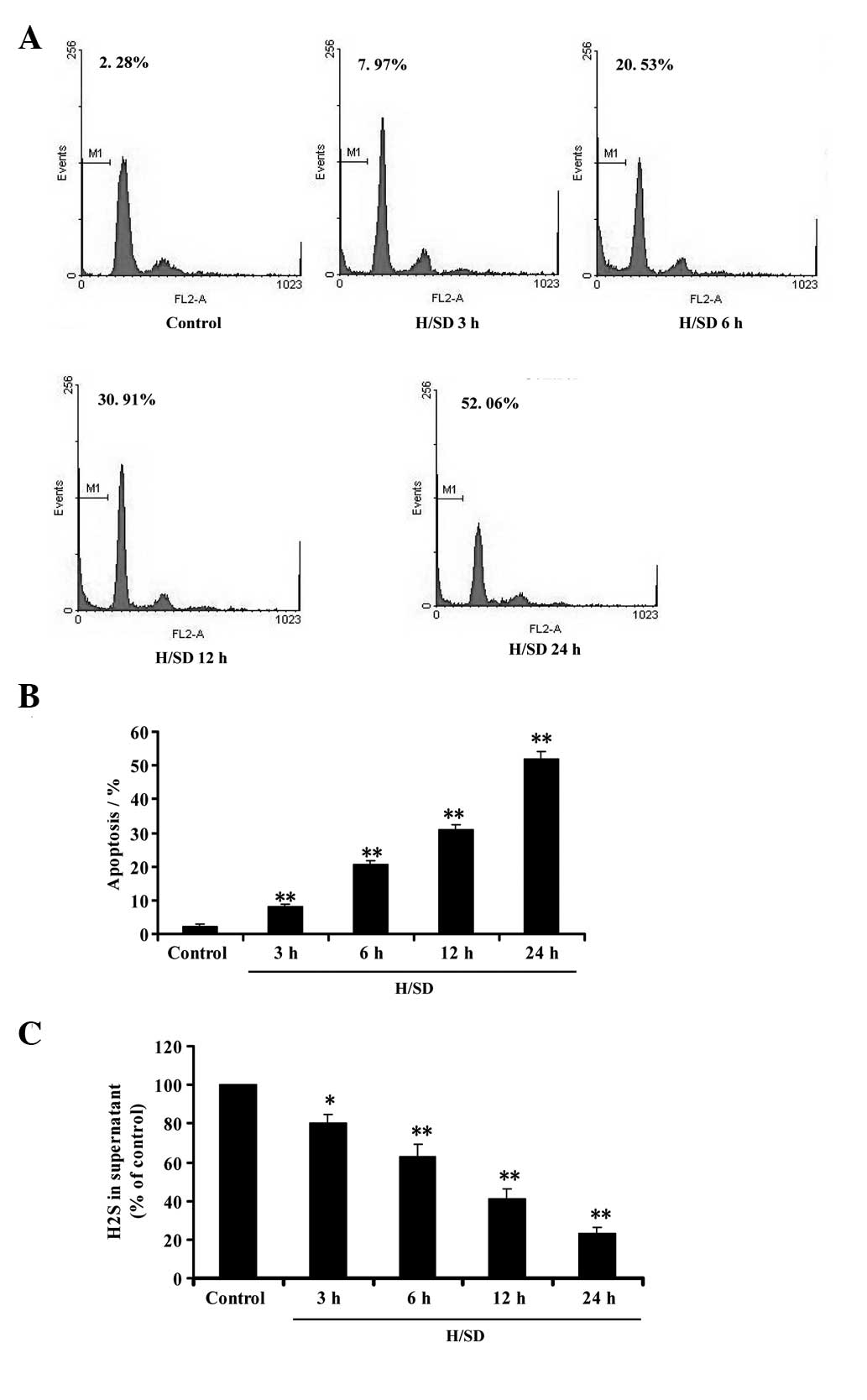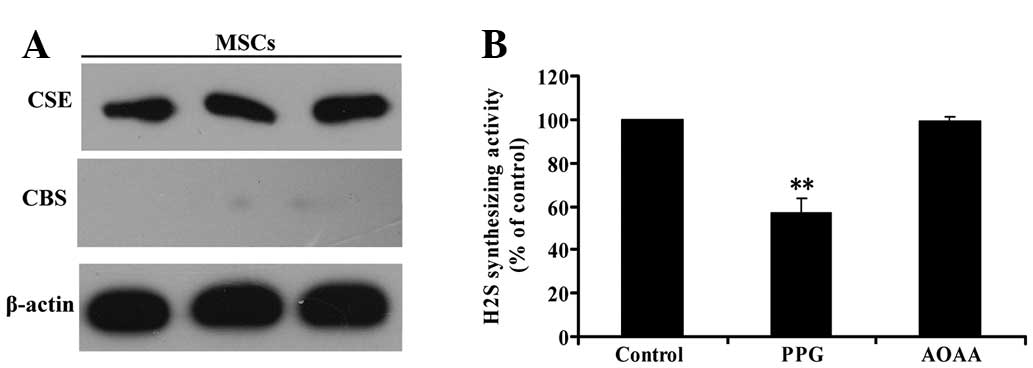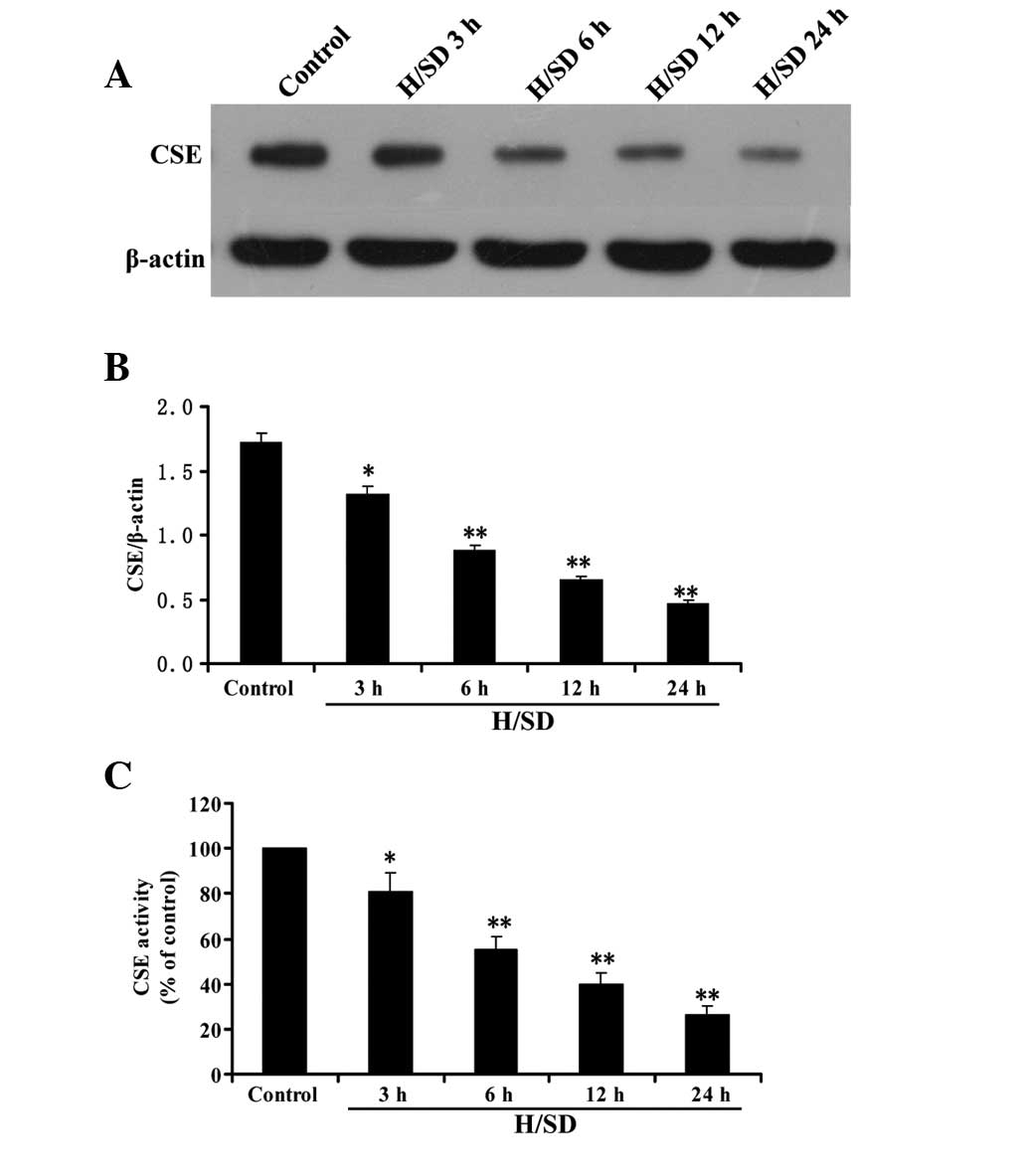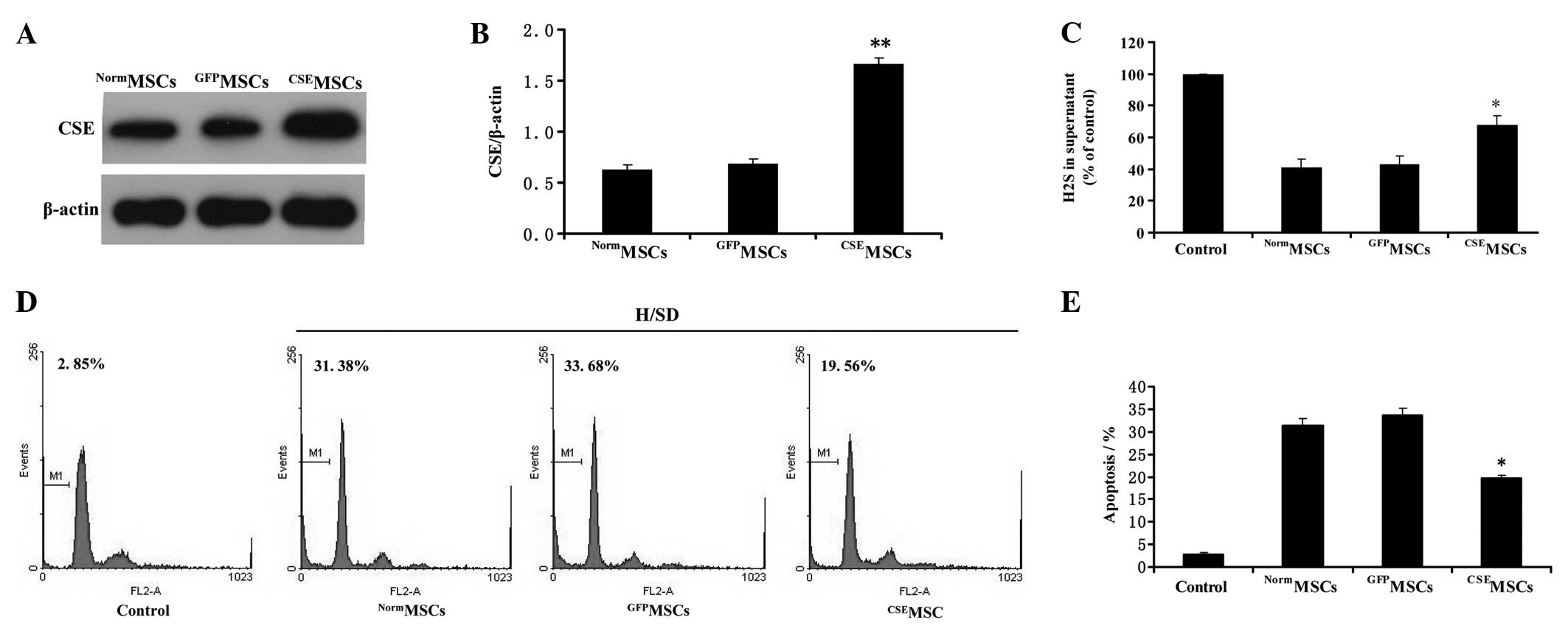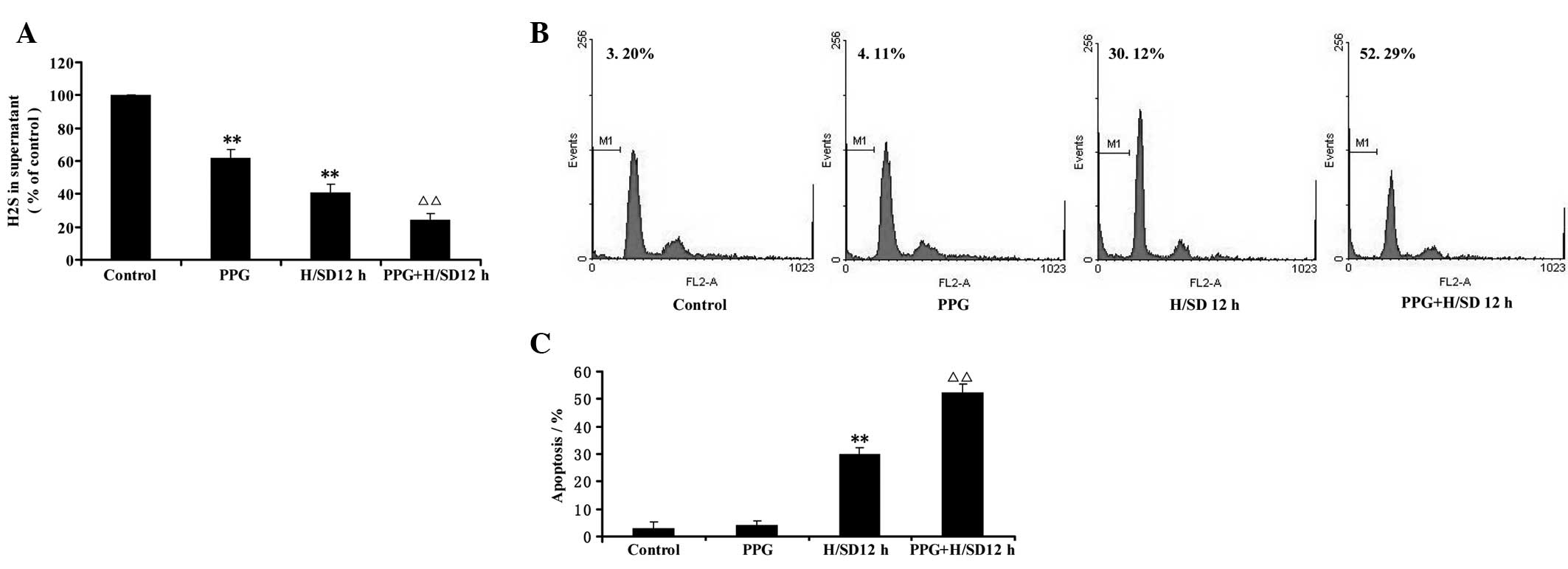|
1
|
Lloyd-Jones DM, Larson MG, Leip EP, et al:
Lifetime risk for developing congestive heart failure: the
Framingham Heart Study. Circulation. 106:3068–3072. 2002.
View Article : Google Scholar : PubMed/NCBI
|
|
2
|
Zhang H, Wei YJ and Hu SS: Intraoperative
cell transplantation for congestive heart failure: experience in
China. Semin Thorac Cardiovasc Surg. 20:126–130. 2008. View Article : Google Scholar : PubMed/NCBI
|
|
3
|
Kovacic JC and Graham RM: Stem-cell
therapy for myocardial diseases. Lancet. 363:1735–1736. 2004.
View Article : Google Scholar : PubMed/NCBI
|
|
4
|
Fukuda K and Yuasa S: Stem cells as a
source of regenerative cardiomyocytes. Circ Res. 98:1002–1013.
2006.PubMed/NCBI
|
|
5
|
Nesselmann C, Ma N, Bieback K, et al:
Mesenchymal stem cells and cardiac repair. J Cell Mol Med.
12:1795–1810. 2008. View Article : Google Scholar : PubMed/NCBI
|
|
6
|
Dai W, Hale SL, Martin BJ, et al:
Allogeneic mesenchymal stem cell transplantation in postinfarcted
rat myocardium: short- and long-term effects. Circulation.
112:214–223. 2005. View Article : Google Scholar : PubMed/NCBI
|
|
7
|
Müller-Ehmsen J, Krausgrill B, Burst V, et
al: Effective engraftment but poor mid-term persistence of
mononuclear and mesenchymal bone marrow cells in acute and chronic
rat myocardial infarction. J Mol Cell Cardiol. 41:876–884.
2006.PubMed/NCBI
|
|
8
|
Zhu W, Chen J, Cong X, Hu S and Chen X:
Hypoxia and serum deprivation-induced apoptosis in mesenchymal stem
cells. Stem Cells. 24:416–425. 2006. View Article : Google Scholar : PubMed/NCBI
|
|
9
|
Robey TE, Saiget MK, Reinecke H and Murry
CE: Systems approaches to preventing transplanted cell death in
cardiac repair. J Mol Cell Cardiol. 45:567–581. 2008. View Article : Google Scholar : PubMed/NCBI
|
|
10
|
Papapetropoulos A, Pyriochou A, Altaany Z,
et al: Hydrogen sulfide is an endogenous stimulator of
angiogenesis. Proc Natl Acad Sci USA. 106:21972–21977. 2009.
View Article : Google Scholar : PubMed/NCBI
|
|
11
|
Sen U, Givvimani S, Abe OA, Lederer ED and
Tyagi SC: Cystathionine beta-synthase and cystathionine gamma-lyase
double gene transfer ameliorate homocysteine-mediated mesangial
inflammation through hydrogen sulfide generation. Am J Physiol Cell
Physiol. 300:C155–C163. 2011. View Article : Google Scholar
|
|
12
|
Lu F, Xing J, Zhang X, et al: Exogenous
hydrogen sulfide prevents cardiomyocyte apoptosis from cardiac
hypertrophy induced by isoproterenol. Mol Cell Biochem. 381:41–50.
2013. View Article : Google Scholar : PubMed/NCBI
|
|
13
|
Calvert JW, Coetzee WA and Lefer DJ: Novel
insights into hydrogen sulfide--mediated cytoprotection. Antioxid
Redox Signal. 12:1203–1217. 2010. View Article : Google Scholar : PubMed/NCBI
|
|
14
|
Kimura H: Hydrogen sulfide: its production
and functions. Exp Physiol. 96:833–835. 2011. View Article : Google Scholar : PubMed/NCBI
|
|
15
|
Tang XQ, Ren YK, Zhou CF, et al: Hydrogen
sulfide prevents formaldehyde-induced neurotoxicity to PC12 cells
by attenuation of mitochondrial dysfunction and pro-apoptotic
potential. Neurochem Int. 61:16–24. 2012. View Article : Google Scholar : PubMed/NCBI
|
|
16
|
Baskar R, Li L and Moore PK: Hydrogen
sulfide-induces DNA damage and changes in apoptotic gene expression
in human lung fibroblast cells. FASEB J. 21:247–255. 2007.
View Article : Google Scholar : PubMed/NCBI
|
|
17
|
Chen YH, Wang PP, Wang XM, et al:
Involvement of endogenous hydrogen sulfide in cigarette
smoke-induced changes in airway responsiveness and inflammation of
rat lung. Cytokine. 53:334–341. 2011. View Article : Google Scholar : PubMed/NCBI
|
|
18
|
Taniguchi S, Kang L, Kimura T and Niki I:
Hydrogen sulphide protects mouse pancreatic beta-cells from cell
death induced by oxidative stress, but not by endoplasmic reticulum
stress. Br J Pharmacol. 162:1171–1178. 2011. View Article : Google Scholar : PubMed/NCBI
|
|
19
|
Xie X, Sun A, Zhu W, et al:
Transplantation of mesenchymal stem cells preconditioned with
hydrogen sulfide enhances repair of myocardial infarction in rats.
Tohoku J Exp Med. 226:29–36. 2012. View Article : Google Scholar : PubMed/NCBI
|
|
20
|
Wang A, Shen F, Liang Y and Wang J:
Marrow-derived MSCs and atorvastatin improve cardiac function in
rat model of AMI. Int J Cardiol. 150:28–32. 2011. View Article : Google Scholar : PubMed/NCBI
|
|
21
|
Pae HO, Lee YC, Jo EK and Chung HT: Subtle
interplay of endogenous bioactive gases (NO, CO and H(2)S) in
inflammation. Arch Pharm Res. 32:1155–1162. 2009. View Article : Google Scholar : PubMed/NCBI
|
|
22
|
Wallace JL: Physiological and
pathophysiological roles of hydrogen sulfide in the
gastrointestinal tract. Antioxid Redox Signal. 12:1125–1133. 2010.
View Article : Google Scholar : PubMed/NCBI
|
|
23
|
Kimura Y, Goto Y and Kimura H: Hydrogen
sulfide increases glutathione production and suppresses oxidative
stress in mitochondria. Antioxid Redox Signal. 12:1–13. 2010.
View Article : Google Scholar : PubMed/NCBI
|
|
24
|
Mani S, Li H, Untereiner A, et al:
Decreased endogenous production of hydrogen sulfide accelerates
atherosclerosis. Circulation. 127:2523–2534. 2013. View Article : Google Scholar : PubMed/NCBI
|
|
25
|
Barry FP and Murphy JM: Mesenchymal stem
cells: clinical applications and biological characterization. Int J
Biochem Cell Biol. 36:568–584. 2004. View Article : Google Scholar : PubMed/NCBI
|
|
26
|
Short B, Brouard N, Occhiodoro-Scott T,
Ramakrishnan A and Simmons PJ: Mesenchymal stem cells. Arch Med
Res. 34:565–571. 2003. View Article : Google Scholar
|
|
27
|
Tan BH, Wong PT and Bian JS: Hydrogen
sulfide: a novel signaling molecule in the central nervous system.
Neurochem Int. 56:3–10. 2010. View Article : Google Scholar : PubMed/NCBI
|
|
28
|
Shibuya N, Tanaka M, Yoshida M, et al:
3-Mercaptopyruvate sulfurtransferase produces hydrogen sulfide and
bound sulfane sulfur in the brain. Antioxid Redox Signal.
11:703–714. 2009. View Article : Google Scholar : PubMed/NCBI
|
|
29
|
Wang W, Li W, Ou L, et al:
Polyethylenimine-mediated gene delivery into human bone marrow
mesenchymal stem cells from patients. J Cell Mol Med. 15:1989–1998.
2011. View Article : Google Scholar : PubMed/NCBI
|
|
30
|
Mani S, Untereiner A, Wu L and Wang R:
Hydrogen Sulfide and the Pathogenesis of Atherosclerosis. Antioxid
Redox Signal. May 21–2013.(Epub ahead of print).
|
|
31
|
Nicholson CK and Calvert JW: Hydrogen
sulfide and ischemia-reperfusion injury. Pharmacol Res. 62:289–297.
2010. View Article : Google Scholar : PubMed/NCBI
|
|
32
|
Yang G, Wu L, Jiang B, et al: H2S as a
physiologic vasorelaxant: hypertension in mice with deletion of
cystathionine gamma-lyase. Science. 322:587–590. 2008. View Article : Google Scholar : PubMed/NCBI
|
|
33
|
Łowicka E and Bełtowski J: Hydrogen
sulfide (H2S)-the third gas of interest for pharmacologists.
Pharmacol Rep. 59:4–24. 2007.PubMed/NCBI
|
|
34
|
Nie Y, Han BM, Liu XB, et al:
Identification of MicroRNAs involved in hypoxia- and serum
deprivation-induced apoptosis in mesenchymal stem cells. Int J Biol
Sci. 7:762–768. 2011. View Article : Google Scholar : PubMed/NCBI
|















